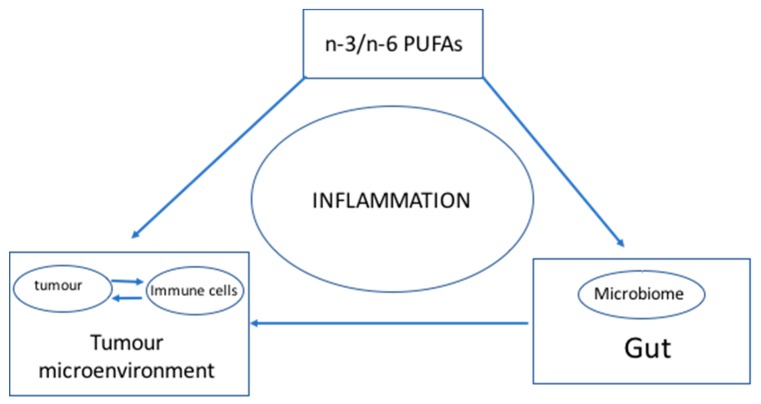Figure 1.
The hypothesis. Inflammation is the central element in the relationship among LC-PUFAs, the gut microbiome and the tumour microenvironment/immune system. Inflammation is regulated by the interaction of the components of the triad. LC-PUFAs (n-3 and n-6 fatty acids) have been shown to directly regulate cancer cells and immune cells as well as modulating the inflammatory state that sustains the tumour microenvironment which promotes the growth and malignancy of tumours. Simultaneously, LC-PUFAs have a direct role on microbial growth in the gut, which has consequences to the inflammatory state of the gut. Gut dysbiosis has a direct consequence in promoting inflammation in the tumour microenvironment suppressing the anti-tumour activities of the immune cells and immune checkpoint inhibitors. The model supports the role of LC-PUFAs in regulating the progression of cancer directly and indirectly through the gut microbiome assisting in modifying the tumour microenvironment.

